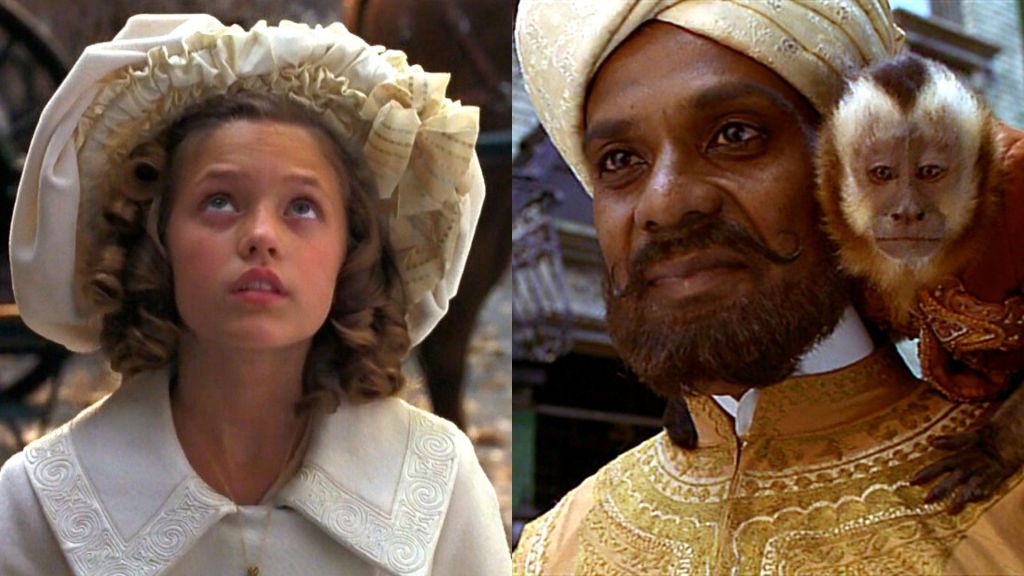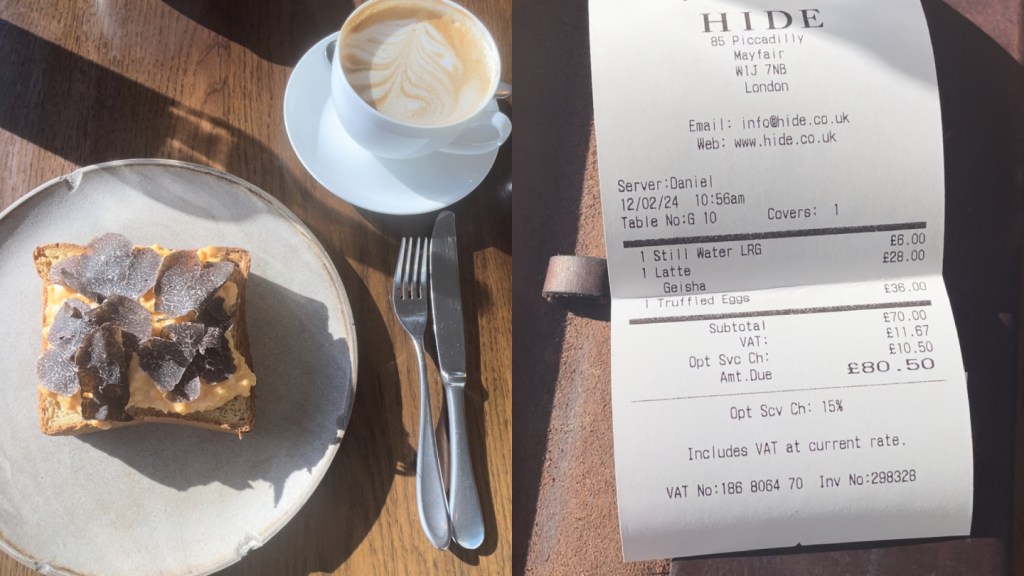English is not our mother tongue, but so many of us speak it. So many of us even take pride in how well we speak it.
I grew up in the post-colonies—namely India, Hong Kong, and immigrant communities in the U.S. The whole time, my head was deep in British classics; I read them as if they were my own history.
Videos by VICE
One of my favorites was The Mill on the Floss, a Victorian novel written by Mary Ann Evans under her pen name, George Eliot. The protagonist, Maggie Tulliver, was a rebel. I vividly remember how Eliot describes her, shaking her head like a Shetland pony before chopping off her hair in defiance of femininity. I so closely identified with Maggie that the little town of Lincolnshire, where the novel was set, could have been Rajkot, Gujarat, where I first read the book in secondary school.
“If the past is not to bind us, where can duty lie?” — The Mill on the Floss
I carried my radical, unnecessary self-identification with Maggie Tulliver on through college, through semesters of alienation in writing classes where professors would liken me to Jhumpa Lahiri and tell me how lucky I was to be “exotic.” During my last semester, I even wrote a term essay on how women in Victorian British novels demonstrate virtue.
In addition to Vanity Fair, The Heart of Midlothian, and Bleak House, I studied The Mill on the Floss.
In the entire essay, not once did I mention race. I must have tacitly understood that those elevated to classical protagonist must be white, as white was not a color but the absence of it; that in narratives, whiteness performs as a sort of blankness, a canvas to paint metaphor and simile on; that it lends neutrality to fraught topics, and allows the story to enter the mainstream. The literary white woman, whether she was snipping her locks off with farm scissors, blushing through Derbyshire, or yearning for a room of her own, was my unquestioned role model.
Katherine would have me clatter the far keys of her baby grand piano to create a dramatic atmosphere while she paraded around in her mother’s fancy clothes. In our fantasies, she was the princess, about to get married. She acted like she was a celebrity, but she was just a white British girl. I thought she was the most cosmopolitan, most self-possessed of our Hong Kong elementary school classmates. (My mother, now hilariously, accused me then of “kissing white ass.”)
When Princess Diana died, Katherine and I sat in my room and wept, because we thought there were no more princesses in the world. Her death made our own lack of royalty more real. I performed a mournful solemnity I had picked up from books about childhood capers like those of Roald Dahl, Enid Blyton, and Frances Hodgson Burnett, and recalled a picture of Diana touching Black children with HIV/AIDS. “What a saint,” said an older aunty type. “For a princess to touch disease like that.”
Burnett’s fixation on princesses—more a state of mind than a title—through the lofty, imaginative protagonists of A Little Princess and The Secret Garden fostered literary narcissism in me. Sara Crewe of A Little Princess was a storyteller; despite her fall from fortune, she unnerves her elders by retaining her regal stature and ability to weave narratives. Though demoted to a lowly servant, she benefits from what she calls “magic” —dinners set out by a monkey-toting lascar who parkours into her quarters every night. She feels deserving of the remarkable kindness because she will always be a memsahib, one who can speak both posh English and strangled Hindustani. Then, when the diamond mines in the stories about her family turn out to be reality rather than childish fantasy, she is able to turn back into a princess.
The idea that one could have innate worth was so attractive to me—after all, the Hindu concept of karma fundamentally justifies caste supremacy and privilege. I wanted to be recognized as worthy just for my speech and manners, as Sara Crewe had been.
“Everything’s a story—you are a story—I am a story.” — A Little Princess
In 7th grade, we were encouraged to enter a Commonwealth essay writing competition. The prompt was to imagine new worlds. I came up with one where I became a doctor and created a township village where education was free and jobs were guaranteed. I was benevolent and rich and would visit to serve tomato soup to the populace. It was a neoliberal fantasy wrought of white guilt I had unknowingly absorbed. As Sara Crewe would call it: “largesse,” the kind that rationalized the Commonwealth extending the “gift” of English to its former colonies.
But largesse is not a negotiation, nor is it altruistic. Establishing English as a lingua franca around the world benefits the English the most, just as fulfilling the White Man’s Burden of “civilizing” indigenous peoples involved, for example, stealing an estimated $45 trillion from South Asia, about 17 times the U.K.’s annual GDP. I guess that is what England means by “commonwealth.”
Because of “largesse,” England is the stepmother who never loved any of us. I am preoccupied with my place in her embrace. Today, I bring up the Kohinoor Diamond often, as the massive jewel, which was expropriated and remains unreturned, is just one example of how we were mistreated and how that mistreatment has been denied. I hug the train of England’s dress because I cannot reach up to her bosom; I still want her approval, but she is hard to please. She never wanted me anyhow.
The message of the British period drama is clear: that history is charming, that nostalgia can cloak any monstrosity, that the British deserved every plunder.
I am guilty of spending hundreds of hours watching all the historical drama series. The pleasant diversion of period dramas is, in its essence, psychosocial integration made possible by colonial propaganda. You watch period dramas and take as truth their message: British colonialism was quaint, glorious, and a high point in civilization.
Imperialism is crucial to the cultural representation of England to the English. As Gayatri Chakravorty Spivak notes in her own reading of nineteenth-century British literature, the erasure of imperialism as a focus of analysis “attests to the continuing success of the imperialist project.” By showcasing the quintessence of the past, for example, Raj nostalgia as invoked in the 2017 movies Victoria and Abdul and The Viceroy’s House, is packaged in genteel manners and meaningful walks on grassy estates funded by invisible colonial exploits. Victoria and Abdul deems the relationship between Queen Victoria and a brown man “history’s most unlikely friendship.” Meanwhile, the young man introduces Victoria to mangoes. This is supposed to be light-hearted and cute—but is there anything truly cute about a monarch exploiting a huge section of the world and only gaining a modicum of cultural literacy by way of tasting fruit? Does Victoria tasting a mango mean that she believes South Asians are people?
Last summer, I found myself on a beach outside of Havana, drinking a Cuba Libre and reading Pride and Prejudice zombie fan fiction written in 2009. In it, the Bennet sisters are miraculously the best fighters in England, but were trained by the Chinese, who were considered lesser fighters than the Japanese. The book, rife with icky descriptions of “Orientals,” countless ninjas that wavered in the face of Bennet fury, and a throwaway interracial relationship, was the lucrative marriage of two high-performing genres and casual racism by a white male author.
Why was I sitting beside the lazy seafoam green waves amid a glorious July swelter in a socialist haven reading fanfiction about cold, shitty England and its cold, shitty people? Despite all my issues with them, I’m attached to these narratives—I grew into my own writing practice emulating them. They’re relaxing because I don’t have to work to understand them. They are familiar.
“You must learn some of my philosophy. Think only of the past as its remembrance gives you pleasure.” — Pride and Prejudice
But that fact that they’re familiar is what makes them insidious. It is the job of the professional Orientalist, filmmaker or writer, to create a restored picture of the Orient. It’s a messy history, a messy relationship, but the Orientalist finds a way to “circumvent the unruly (un-Occidental) non-history of the Orient with the orderly chronicle, portraits and plots,” as Edward Said says.
After dehumanizing the Orient through fiction, the colonizer must also find a way to occupy maximum space in these portraits—to suck up agency and air from people of color in order to maintain supremacy. Through these stories, I wasn’t learning how to be white and powerful from the colonizer. I was learning my place by noting his. He took our jewels and cultivated opium addictions and connived for power, and then he starved us all.
Such dramas and novels remain popular, however, precisely because that dominance is waning—and everyone knows it, although the English would deny it. “[Britain is still the nation] that ruled a quarter of the world,” invoked Margaret Thatcher, in the flush of the British’s Falklands War victory in 1982. Salman Rushdie remembers the declaration in his essay “Outside the Whale,” pointing to the imperial anxiety of the country. He likens Raj fictions to the “phantom twitching of an amputated limb.”
I’ve only visited England once, six years ago. It was cold and wet and I choked on my own bitterness as well as sluggish piles of the most substandard curry. I did not see the Kohinoor, because the entrance fee was too high. But I did get followed around a store by a security guard who made me pull my hood down.
In college, I shared a joke with my white friends that hasn’t aged well: “You’ve been colonized, bitch.” They’d say it every time I added sugar to my tea or pronounced “laboratory” with too many syllables. “I’ve got postcolonial rage,” I now say with toothy jocularity.
“One of the beauties of Jungle Law is that punishment settles all scores. There is no nagging afterward.”— The Jungle Book
It’s true that I am, in bursts and spurts, angry. Angry, that our minds were colonized. Angry that education systems uphold the colonization of the mind. Angry that I didn’t even have to live in England to be indoctrinated into believing in its supremacy. Angry that I retain only the slightest grasp of my mother tongue, a connection vanquished by colonial powers from Britain and Portugal and now, the U.S. Angry at the cinematic and literary canon. Angry at the pen I took up.
But more than anger, I increasingly feel awe: the whiteness of protagonism I grew up with, like many generations before me, is finally changing. Together, creators of color and their audiences are building new literary traditions that center our voices and our stories. With that broader shift, comes a personal one: maybe I’m ready to stop watching period dramas.
Sign up for our newsletter to get the best of VICE delivered to your inbox daily.




